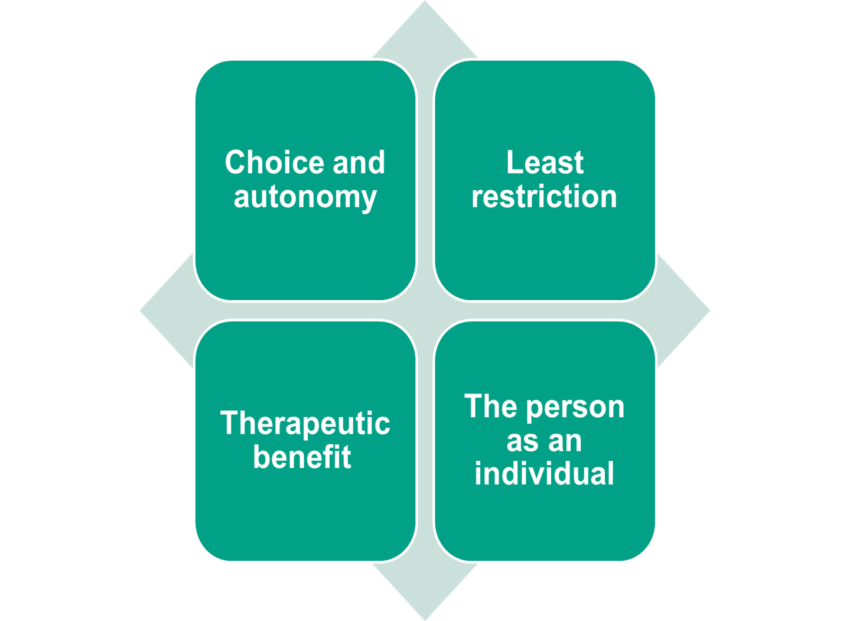As we emerge from the pandemic we are becoming increasingly aware of the effect it has had on our mental health. Its impact on our mental health and the delivery of mental health services will continue to be felt for the foreseeable.
Mental services have been affected by the pandemic in ways that mean patients have had less access to help and support. Face to face support was replaced by phone appointments and waiting lists for these services grew longer.
Consequently, The Department of Health and Social Care is driving change and reform across its entire portfolio. The department is still very much committed to reforming the Mental Health Act, and following the appointment of a new secretary for state it will strive to learn from Covid-19, to better prepare mental health services for similar future crises [1].
The department will be bringing forward a new Health and Care Bill which will make better use of the collective resources of local systems so that the NHS, local authorities, and the voluntary sector can work together to improve the health of local areas.
Mental Health Act Reform – Key Objectives and Principles
In January 2021, a white paper reforming the mental health act was published [2]. The act is a very serious piece of legislation as it informs how services can detain people, often against their will when they are suffering from ill mental health.
Reform is necessary to challenge the current ethos around mental health care. If people are continued to be detained and treated against their will, then we must question how is best to do so.
Challenge: Too many people in mental health crises are being detained and not properly supported by services that are not equipped to deal with the crisis. E.g., in A&E or by the police.
Reform: The department says that people will be able to access timely community based mental health support, including crisis care to avoid the need for detention and admission.
Challenge: Too many people are detained for long periods, in environments that cannot achieve a therapeutic benefit, or feel worse after a period of detention.
Reform: Detentions under the Act will only happen when and if there is a therapeutic benefit. Doctors will be provided with better resources to decide what the best course of action is for a patient and whether detention is always necessary.
Challenge: Patients have said that when they have voiced reasonable concerns/complaints they have been ignored or dismissed as symptoms of their mental disorder.
Reform: Decisions and actions should be based on patients’ wishes and preferences and uphold dignity and respect. Each person should be treated as an individual and their symptoms should not be held against them.
Challenge: There is a lack of transparency in the decision-making process for detention and treatment, patients feel disempowered.
Reform: Patients will be able to expect increased scrutiny of decision making and greater rights to challenge.
Challenge: Black people were 4 times more likely to be detained than white people and over 10 times more likely to be on a Community Treatment Order.
Reform: There will be reduced inequality and disparity of experience and outcomes, this is expanded on further in this article.
The legislation will be underpinned by the four principles set out in the White Paper. These are:

Planned Impacts of Mental Health Act Reforms
The new bill seeks to modernise the legislation around mental health services. The planned impacts continue to follow the four guiding principles outlined above.
- Ongoing support in community: There will be enhanced community-based offer for people with serious mental illness. The development of Advance Choice Documents (ACDs) will be put in place to guide supporting members of the community to offer care if an individual is detained in the future. Additionally there will be a strategy that will see people choosing a ‘nominated person’ in the community and will get information about a patients care if they are detained.
- Crisis: We will see more alternatives to hospital detention when someone is in crisis. This may come in the form of crisis houses.
- Assessment for detention: There will be a slight tightening of detention criteria and a better recording of justifications to detain. The detention periods will be shorter. Treatment preference, especially refusals will carry more legal weight. The culture of wards will be shifted so that they are less controlling and more therapeutic. The physical ward environment will be improved, banning dormitories.
- Challenging detention and treatment (tribunal): There will be more frequent opportunities to challenge detention decisions. Tribunals will play a new role in treatments refusals.
- Racial Disparities: The reforms must benefit all people. Ongoing work to establish a patient and carer race equality framework to improve experience and outcomes for those coming from minority backgrounds. Carers should feel more informed about how to discuss options for treatment without discriminating based on a patient’s ethnic background. Carers must spend more time with patients to understand the diverse cultural needs of everyone.
- Improving the rights of those with learning disabilities: There is a commitment in the manifesto to regulate how people with learning disabilities are treated by the law. A separate piece of legislation will be written for patients with learning disabilities which will acknowledge their unique needs. Too often people have been detained without their rights being upheld. Mental health should be the only grounds for detention, not autism or other learning disabilities.
The Long Term Plan
Before the pandemic, the NHS Long Term Plan was set to further expand and improve mental health services. This recovery plan was paused but should now be readopted and adapted.
Some groups have reported higher levels of anxiety and stress over the course of the pandemic. This includes children and young people, young women, those facing decreased financial security, older adults, those who have been exposed to violence and those who have worked on the frontline.
With this in mind, the Department of Health and Social Care published their Cross-Government Covid-19 Mental Health and Wellbeing Recovery Plan in March 2021 [3]. This set out the future for the recovery of the collective mental health of the nation and the recovery of mental health services.
The objectives include:
- To support the general population to act over their own mental wellbeing
- To prevent the onset of mental health difficulties by taking action to address the factors which play a crucial role in shaping mental health and wellbeing
- To support services to continue to expand and transform, meeting the needs of people who need specialist support
- To continue to work with colleagues across government to prevent people from coming unwell and to support their recovery
Compared to 10 years ago, mental health services are in a very different place, and this is down to the commitment and passion of service providers. However, the pandemic has shown us that we need to be constantly transforming our services to adapt to the changing needs of the population.
[1]Walshe, Fiona. 2021. Director for Mental Health and Disabilities, Department of Health and Social Care
[2] Reforming the Mental Health Act. January 2021. Department for Health and Social Care
[3] Cross-Government Covid-19 Mental Health and Wellbeing Recovery Plan. 2021. The Department for Health and Social Care
Register FREE to access 2 more articles
We hope you’ve enjoyed your first article on GE Insights. To access 2 more articles for free, register now to join the Government Events community.
(Use discount code CPWR50)



